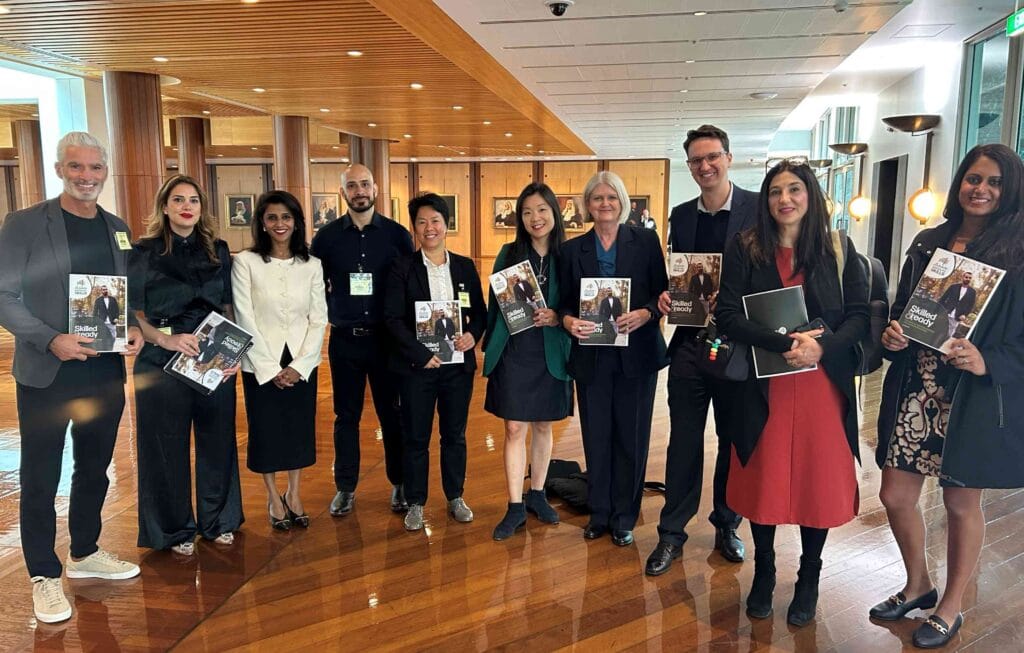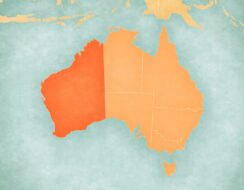08 Oct 2024
Media releases“We’re ready to work”: New skills shortage blueprint to tackle rising prices, housing delays, service waitlists
Business groups, unions, social services and community organisations have united to demand changes to federal workforce strategy that would address skills shortages crippling Australian communities, families and businesses.

The new alliance campaign ‘Activate Australia’s Skills’ will launch in Canberra Parliament House today.
It will deliver an open letter from over 50 organisations to all political parties, calling for urgent action to get people with quality overseas qualifications already living in Australia into construction, healthcare and other areas of desperate need.
The convenor of the new campaign, Settlement Services International (SSI) CEO Violet Roumeliotis, said the skills recognition system has needed modernisation for a long time, but that the cost of living and housing crisis has made fixing it more urgent than ever before.
“Hundreds of thousands of Australians are blocked from using overseas qualifications by an endless maze of red tape and hurdles unrelated to their actual skills and experience,” Ms Roumeliotis said.
“Meanwhile we have communities suffering from skills shortages that mean people can’t access essential services, prices are going up and businesses are put at risk. Especially in the outer suburbs and regions.”
The Activate Australia’s Skills Blueprint maps out four key changes that all parties must commit to ahead of the next election:
- One national governance system including an Ombudsman
- A seamless process with reduced red tape.
- Remove cost barriers and an online portal
- Skills recognition navigators to get qualified people working in their professions again.
“The skills recognition system has become so complicated that the things that matter most – quality and experience – can get lost in a fog of hugely expensive fees, outdated paperwork and slow, complex processes,” Ms Roumeliotis said.
“We have doctors and electricians driving ride shares. We have engineers stacking shelves. We have nurses and pharmacists cleaning offices.
“The Activate Australia’s Skills Blueprint will get these experienced workers back into their professions: building houses, helping regional communities, caring for our loved ones.
“The diversity and power of the new alliance shows these solutions are popular and common sense. Everyone wins.”
Chilean-born Antonio migrated to Australia in 2018 and, thanks to a complex and expensive skills recognition process, has been unable to resume work as a physiotherapist – a profession that is on the Skills Priority List after experiencing a nationwide shortage.
“When I came to Australia, I wasn’t expecting to have my degrees recognised right away, but I thought I’d have a chance to show my expertise,” he said.
Instead Antonio found himself taking on casual work as a cleaner, labourer, waiter and delivery driver, before finding work as a research assistant.
“I feel frustrated – I love treating patients. I chose this career because I was making a difference in people’s lives,” he said.
Key facts from Activate Australian’s Skills Blueprint launched today:
- Over a third of Australian occupations are in shortage while almost half of permanent migrants living in Australia work well below their skill-level.
- This equates of roughly 621,000 people, with 60 percent arriving through the skilled migration program.
- 90 percent of Australians businesses report facing skills shortages with around half indicating a significant negative impact on their business.
- The situation is persistently worse in regional Australia – job vacancies have historically increased at three times the pace of metropolitan areas.
- In health, four in five occupations are in shortage; almost 200 GP clinics have closed across the country in the last year, impacting every state and territory.
- In construction, all trade roles in building and construction are in national shortage, yet 18,400 permanent migrants with architecture & building qualifications are underutilised.
- Meanwhile, $9 billion dollars could be added to the economy each year by closing the skills underutilisation gap between migrants and Australian-born workers. Filling job vacancies in regional Australia would also add $1.76 billion in direct wages paid to local workers.
Learn more on the campaign website and sign the open letter.
About SSI:
Settlement Services International (SSI) delivers a range of human services that connect individuals, families, and children from diverse backgrounds with opportunities – including settlement support, disability programs, community engagement initiatives and training and employment pathways. At the heart of everything we do is a drive for equality, empathy, and celebration of every individual.
Media enquiries:
Chris Arnott (Essential Media)
M: 0452 616 737



